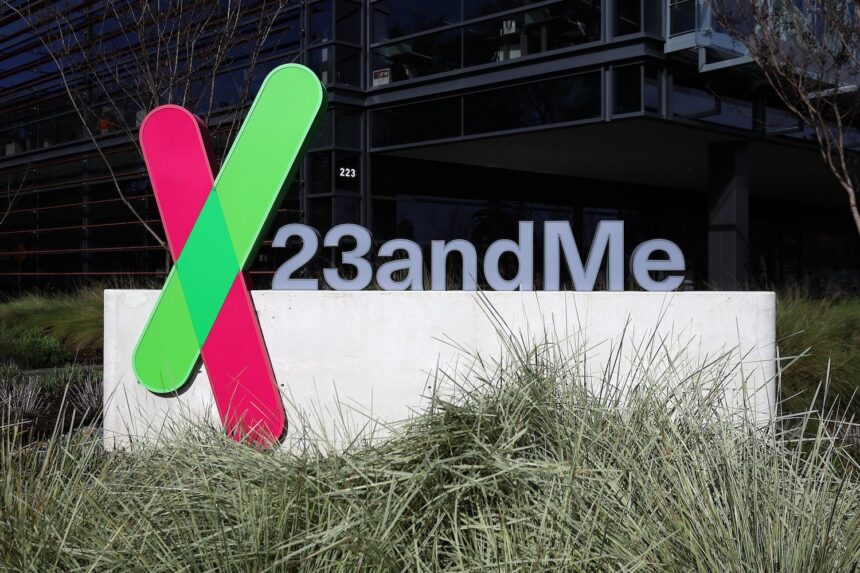The genetic testing company 23andMe announced it was laying off more than 200 employees, or roughly 40% of its entire workforce, according to a press release Monday. The move is part of a restructuring that will see the company also halt the development of its therapeutics division which had been working on various potential medical treatments.
“We are taking these difficult but necessary actions as we restructure 23andMe and focus on the long-term success of our core consumer business and research partnerships,” said Anne Wojcicki, 23andMe’s CEO and co-founder, in a press release. “I want to thank our team for their hard work and dedication to our mission. We are fully committed to supporting the employees impacted by this transition.”
The company says it’s looking to sell assets related to the therapeutics division, which included work on fighting cancer cells and research with monoclonal antibodies.
“We continue to believe in the promise shown by our clinical and preclinical stage pipeline and will continue to pursue strategic opportunities to continue their development,” said Wojcicki. “We remain deeply grateful to the patients, investigators and study staff for their participation in our clinical trials.”
The company said it expects to ultimately save about $35 million per year from the layoffs but expects to incur about $12 million in costs related to getting rid of almost half of its workforce, including severance, transition fees, and other costs.
23andMe went public in 2021 but has struggled to find a sustainable business model, given the fact that most people don’t really have any need to use its services after just one try. After you receive your DNA test results, there’s very little reason to return to the company, even if it’s offering “subscription” services that Gizmodo reported earlier this year had shady auto-renewal policies, according to complaints filed with the FTC.
Wojcicki announced an effort to take the company private in April, but Reuters notes that independent directors resigned in September after not receiving a suitable offer.
23andMe was also hit with a hack back in 2023 that saw the data of almost 7 million users stolen, with a subset of that leaked on the dark web. And now that the company is trying to go private, there’s growing concern about what could be done with the personal data collected on users wherever it’s sold. Normally, that concern is over something like home addresses, credit card numbers, and social security numbers. But when it’s your genetic information, it certainly feels even more personal.
Read the full article here










